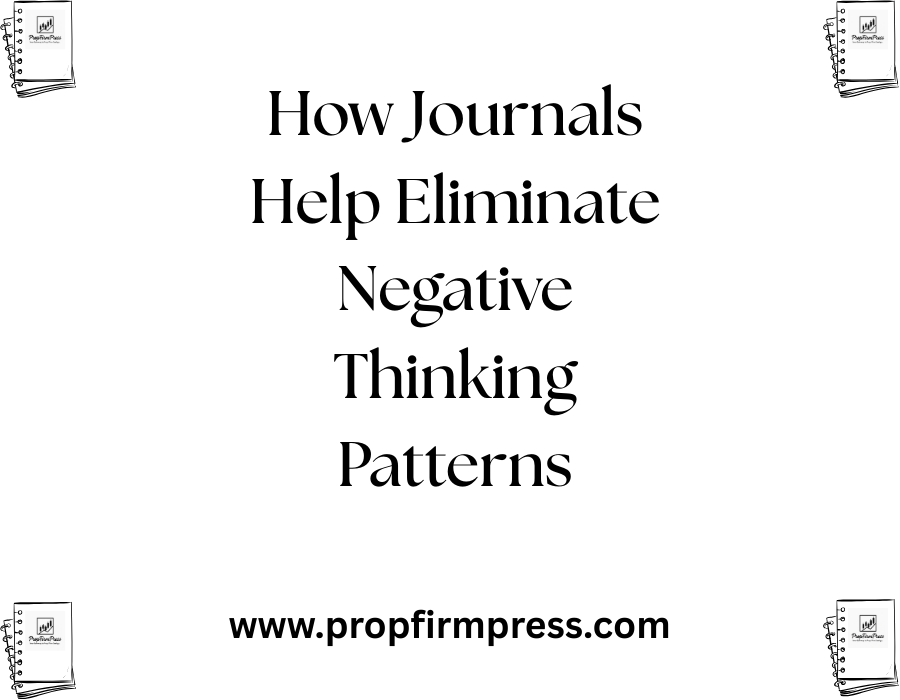How Journals Help Eliminate Negative Thinking Patterns
Negative thinking patterns can create a significant barrier to happiness, productivity, and overall mental well-being. These patterns often become automatic, influencing how we perceive ourselves and the world around us. One powerful yet simple tool to combat these harmful thought cycles is journaling. By writing regularly, individuals can gain clarity, develop self-awareness, and gradually diminish the hold of negativity. Journals encourage reflection and habit building, making them an effective method for transforming the mind.
The Power of Reflection Through Journaling
At the core of eliminating negative thought patterns is the practice of reflection. Journaling offers a dedicated space to process emotions and experiences deliberately. Instead of letting turmoil or negative impulses grow unchecked, writing allows them to be surfaced and examined. This act of putting thoughts into words helps organize and externalize internal chaos, making it more manageable.
When you reflect on your feelings and events of the day through journaling, you cultivate mindfulness—an awareness of the present moment and your responses to it. This mindful reflection is critical because negative thoughts often thrive in autopilot mode, outside of conscious recognition. Journals help you catch these thoughts as they arise, allowing you to challenge or reframe them effectively.
Understanding the Roots of Negative Thinking
Journaling can also uncover the sources and triggers of negative thinking patterns. By consistently recording your thoughts, moods, and reactions, common themes begin to emerge. Perhaps certain types of stressors, environments, or social interactions provoke these thoughts. In identifying these patterns, journals become diagnostic tools for mental patterns.
This understanding is pivotal because negative thinking is rarely random. It often stems from ingrained beliefs or past experiences that influence how you interpret events. Writing regularly can reveal these subconscious biases and help you question their validity. With time, journaling empowers you to replace harmful beliefs with healthier perspectives.
Developing Emotional Intelligence Through Writing
Emotional intelligence involves recognizing, understanding, and managing your own emotions, and journaling is a key practice to cultivate this skill. When you put emotions into words, you slow down the impulsive reactions and create space for thoughtful processing. This helps regulate intense feelings that often accompany negative thinking, such as anxiety, anger, or sadness.
By naming and tracking your emotional states, you gain greater control over how you respond to situations rather than being controlled by automatic negative reactions. Enhanced emotional intelligence also aids empathy toward yourself, reducing self-criticism and fostering a kinder internal dialogue, which is crucial for breaking destructive thought loops.
Journaling as a Tool for Cognitive Restructuring
Cognitive restructuring is a therapeutic technique aimed at changing irrational or negative thoughts into more balanced and realistic ones. Journaling functions as a DIY version of this approach. When you write down negative thoughts, you create a record that can be reviewed critically rather than accepted at face value.
One common journaling method is recording negative thoughts and then writing rational counterarguments to refute them. Over time, this process trains your brain to identify cognitive distortions such as catastrophizing, black-and-white thinking, or overgeneralization. Journaling thus becomes an active exercise that shifts the thought process toward positivity and rationality.
Building Consistency Helps Solidify Positive Habits
The true power of journaling is realized through consistency. Like any habit, journaling takes commitment, but the payoff is profound. Regular journaling embeds self-reflection into your daily routine, reinforcing the habit of mindful thinking.
When you make journaling a non-negotiable part of your day, it becomes a safeguard against slipping back into negative thinking patterns. This ongoing practice encourages proactive mental care rather than reactive coping. Ultimately, journaling helps develop resilience, making you less vulnerable to future negativity and more adept at maintaining a constructive outlook.
Practical Tips for Using Journals to Overcome Negative Thoughts
To maximize the benefits of journaling for eliminating negative thinking, consider these practical strategies:
-
Set a regular time each day for journaling to build a solid habit.
-
Focus on specific incidents or thoughts that triggered negativity and explore them in detail.
-
Use prompts if you’re unsure what to write, such as “What negative thought bothered me today?” or “What can I do differently next time?”
-
Practice gratitude journaling to balance negative thoughts with positive ones by noting things you appreciate each day.
-
Review your journal entries periodically to recognize patterns and measure progress over time.
-
Combine journaling with other reflection techniques like meditation or talking with a trusted friend for deeper insight.
Journaling Formats That Support Reflection & Habit Building
Different journaling formats can align with your goals in breaking negative thought cycles. Here are some effective styles:
-
Free writing: Writing without editing or judging to release pent-up emotions and thoughts.
-
Prompt journaling: Using specific questions or cues to guide deeper thinking.
-
Bullet journaling: Organizing thoughts and tasks in concise bullet points, ideal for tracking moods and triggers.
-
Expressive writing: Focused on exploring intense emotions surrounding traumatic or difficult experiences.
-
Reflective journaling: Looking back at your day or week to analyze reactions and identify positive changes.
Choosing a method you enjoy ensures you continue with journaling, reinforcing self-reflection and the dismantling of negative thinking over time.
Journaling’s Role in Building a Positive Mental Framework
Ultimately, the practice of journaling fosters the creation of a positive mental framework. It rewires the brain through repeated conscious effort, replacing reactive negativity with thoughtful, balanced responses. This shift is gradual but lasting, empowering you to face challenges with optimism and composure.
In the landscape of reflection and habit building, journals serve as trustworthy companions aiding personal growth. They democratize access to mental clarity, offering anyone the opportunity to break free from destructive thought patterns and embark on a path toward mental wellness and emotional strength.
